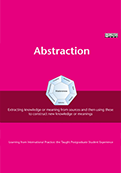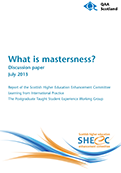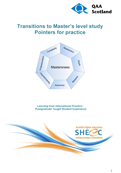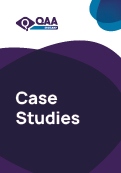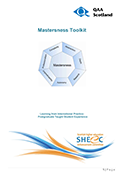
Mastersness Toolkit Handbook
Publication date: 15 Aug 2014
This mastersness handbook has been produced to support the use of the Mastersness toolkit cards which was developed as part of the work of the Learning from International Practice: the postgraduate student experience project.
| Author: | QAA Scotland |
|---|---|
| Format: | |
| Size: | 0.28 MB |
